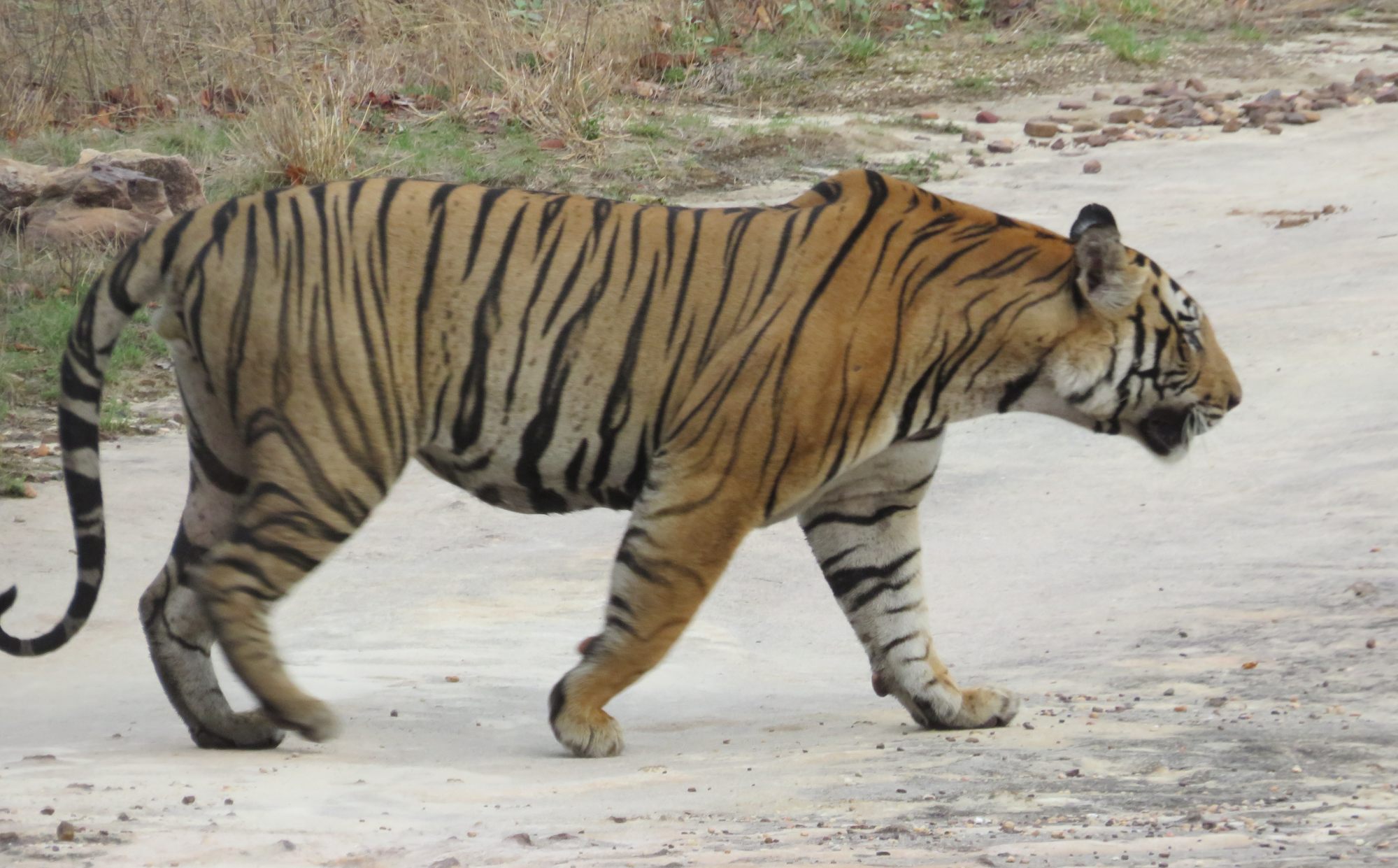Indian mob of 1,000 kills and mutilates endangered Bengal tiger, sparking outrage
This is the third recorded tiger death in as many months in Assam, which is home to only 227 of the big cats

A mob of 1,000 people killed and mutilated an endangered Royal Bengal tiger in a village in northeastern India, hacking off its body parts as trophies in a grisly act of retribution that has raised an outcry among politicians and conservationists.
The villagers, armed with machetes, spears and iron rods, chased the male tiger into a wooded area roughly 20km (12 miles) from Kaziranga National Park – a Unesco World Heritage site and protected tiger reserve in Assam – early Thursday morning.
By the time authorities arrived, the mob had hacked the tiger to death and taken away its legs, ears, teeth, claws and patches of skin, according to the Times of India newspaper.
The animal had reportedly terrorised the area for months – attacking livestock and allegedly killing a man just days before the incident, the English daily Assam Tribune reported.
Locals had been aware of the tiger’s presence since early May and had prepared weapons in advance. When they received word of its location at about 6am on Thursday, they went on a hunt.

Three forest rangers were injured trying to protect the animal, divisional forest officer Gunadip Das told The Times of India. Authorities have opened an investigation into the killing and arrested one man so far.
An autopsy was carried out and the remains later cremated. The tiger was found to have died from sharp weapon wounds, not gunshots, Das said.
This is the third recorded tiger death in as many months in Assam, which is home to only 227 of the big cats, according to an official census in 2022. In February, the carcass of a tiger, later determined to have died of old age, was found in a national park. Another intact carcass was spotted a month later. Its cause of death could not be ascertained.
The Royal Bengal tiger is India’s national animal. There are only about 3,140 of them left in the world, according to the International Union for Conservation of Nature, which listed the tigers as “endangered” on the red list of threatened species.
Local legislators condemned the killing as brutal and unjustifiable. “It was a very painful act,” said Mrinal Saikia, a member of the legislative assembly, demanding strong action against the perpetrators. “Earth is not only for humans, it is for animals as well. Wild animals also need space.”
Conservationists questioned if the tiger’s death could have been prevented.
“This was the only tiger roaming at Dusutimakh village for the last few weeks. One local informed us about the presence of the tiger on May 4 and accordingly the forest department was informed,” environmental activist Apurba Ballav Goswami told the Times of India. “If there was deployment of forest force and proper alertness, such an incident could have been averted.”